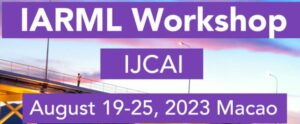Zied Bouraoui
Associate Professor in Computer science, Université d’Artois, CRIL
Title: Learning Semantic Concept Embedding from Langage Models
Abstract: Learning static vectors that capture the meaning of concepts remains a fundamental challenge in applications where word meaning has to be modelled in the absence of (sentence) context. For instance, static word vectors are needed for zero-shot image classification, and zero-shot entity typing, for ontology alignment and completion, taxonomy learning, or for representing query terms in information retrieval systems. In this talk, I will discuss some strategies that can be pursued to learn effective concept representations from language models. I will also provide an overview of how downstream applications could benefit from such embeddings.
Short Bio: Zied Bouraoui is an Associate Professor at the University of Artois in France, and a member of the CRIL CNRS research lab since 2018. He obtained his Habilitation and Ph.D. in Artificial Intelligence from the University of Artois in 2022 and 2015 respectively. His research interests lie at the intersection of Knowledge Representation and Reasoning (KRR), Natural Language Processing (NLP), and Machine Learning (ML). Zied holds prominent positions within the AI community, and has co-authored more
than 30 peer-reviewed papers published in the top-ranked AI journals and conferences (e.g. AAAI, IJCAI, ECAI, KRR, ACL, SIGIR, ISWC), many awarded at top-ranked conferences.
Emiliano Lorini
Senior researcher CNRS in Computer Science, IRIT
Title: A Novel View of Analogical Proportion between Formulas
Abstract: In the talk I will present a novel semantics for analogical proportions between propositional formulas that generalizes the semantics for analogical proportions between complete terms/boolean vectors. I will show that such generalization is useful since it allows us to capture in a natural way analogies between concepts.
Short Bio: Emiliano Lorini is a senior CNRS researcher and co-head of the LILaC team (Logic, interaction, language and computation) at the Institut de Recherche en Informatique de Toulouse (IRIT). His research focuses on modelling interactions between cognitive agents, with tools coming in particular from game theory and epistemic logic



